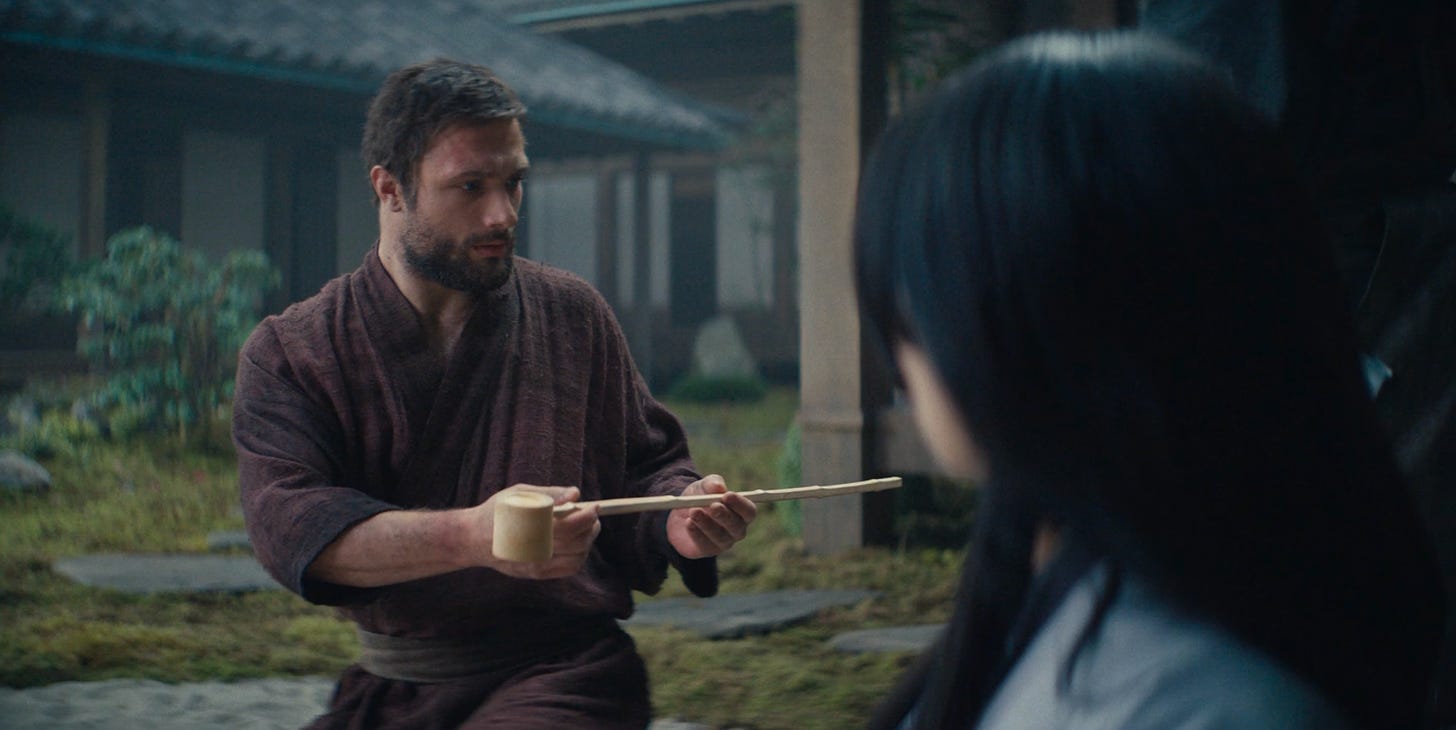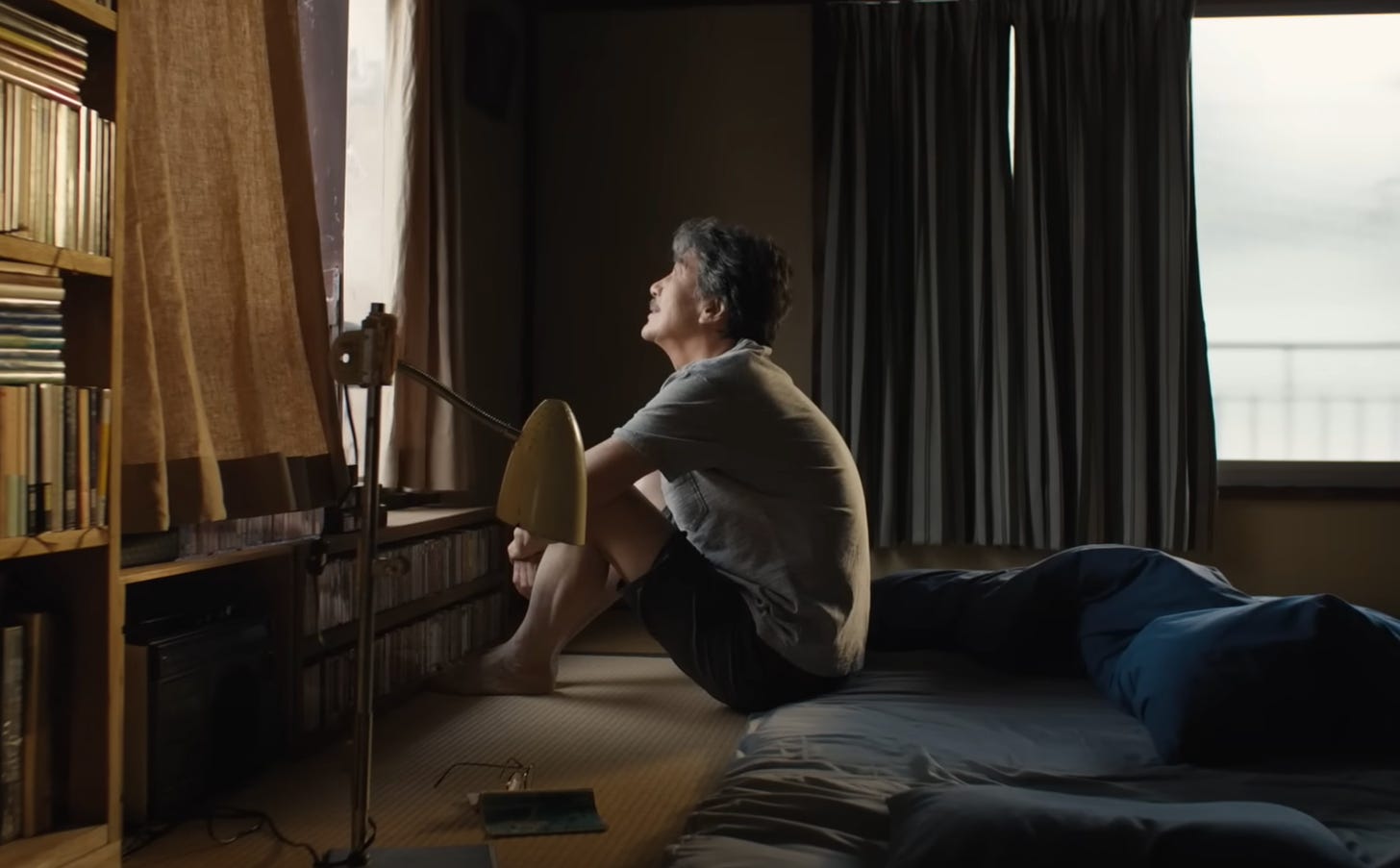Kyle Chayka: A new TV show getting comparisons to Game of Thrones is, shall we say, a double-edged sword. Game of Thrones was not classy, nor smart, nor a subtle cultural text. But it was exciting appointment TV that brought millions of people around the world into the same fantasy narrative. And we crave more Thrones. I personally really enjoyed House of the Dragon, its quirky prequel series, but I understand why it didn’t quite scratch the itch for everyone. Thus, in comes Shogun, FX / Hulu’s miniseries about a British sailor washed onto shore in early-1600s Japan, the era when the Portuguese had a monopoly on Japanese trade. Shogun doesn’t have dragons, but it does have the gritty faux-medieval historical quality and rampant political intrigue that really drove Thrones. (The show, from a pair of American writers, is an adaptation of a 1980 James Clavell novel.)
That British sailor, John Blackthorne, is the western viewer’s avatar for the knotty world of feudal Japanese politics. The shogun has died and the heads of various families are competing to take power (aren’t they always?), or at least control the old shogun’s young son as regent. Through various mishaps, Blackthorne falls in with Lord Toranaga, a shrewd operator facing the prospect of all the other families banding against him, though the previous shogun seemed to handpick him as caretaker. Can Blackthorne’s knowledge of Portuguese secrets help the pair beat the odds??
You don’t really need to know any of that to enjoy the ride, though, because Blackthorne (based on a real British sailor named William Adams who stayed in Japan and became a samurai) is also figuring it out as he goes along. His western will-to-power seems to conflict with the cliche-Japanese resignation to fate. But then Toranaga is just as wily. The characters on both sides, Japanese and foreign, are not essentialized; even within early episodes, they are rounded personalities. I can’t speak to how realistic the show is in its depiction of religio-colonialist conflict. What’s more important is that episode two ends with an absolutely killer (literally) assassination attempt / chase scene / sword fight that’s as good an action sequence as anything Thrones came up with. By the end, I was cheering.
Nate Gallant: The film Perfect Days, on its face, can feel like a very comfortable watch. Quiet. Calming. Broken up by pithy, efficient dialogue, cassette renditions of Patti Smith and Lou Reed, chirping birds and the rustling of leaves on Tokyo trees. The film follows two weeks, day by day, in the relatively uneventful life of Hirayama, a decidedly quiet, older man who cleans bathrooms for the very real "Tokyo Toilet" project, which has installed a good few architecturally significant, Instagrammable public restrooms around the city.
However, its director, German filmmaker and playwright Wim Wenders, has gone far beyond the superficial quietude exuded by the film. On the one hand, the movie could beg comparison to the Orientalist drivel of other European directors whose films offer up the silence of subservient Asian men as representative of a culture of all-encompassing spiritual repose. On the other hand, Wenders, whether he knows it or not, has stumbled into the now long-running era of the vlog, which equally threatens to strip any activity of daily life of its human meaning as commodity when recorded and put online. Hirayama, despite his commitment to camera film and a flip-phone, could just as well be the star of some toilet TikTok trend.
The film succeeds, I think, in walking a fine line to avoid either totalizing extreme. Somewhat in the vein of Yoko Tawada's novel Scattered All Over the Earth, it accomplishes something very concrete: disorienting the viewer's relationship to a touchstone of Japan's global image, in this case the technically superior toilet, by putting the complexity, pathos, and imperfection of a particular human life at its center.
Its success on this front rests largely on the virtuosic performance of Kōji Yakusho as Hirayama. His depiction is kind, but occasionally angry. He has clearly struggled to maintain relationships with family and friends, but is a very understanding and responsible weird uncle to his young niece. He is dedicated to his work, but the scenes of him scrubbing toilets are not overly stylized. His labor is neither art nor spiritual quest. Most importantly, his quietude isn't knowing. His apparent disengagement is present throughout the movie, but most often hangs in any scene as awkward confusion, or a wincing, sometimes heartbreaking sign of his difficult solitude. Yakusho's wordless, close-up performance in the final scene, which I promise spoils nothing, is perhaps only rivaled in recent memory by Adele Haenel's in Portrait of a Lady on Fire.
Granted, many directors in Japan have, perhaps more creatively and critically, challenged the culture's filmic relationship to silence–most notably, Ryusuke Hamaguchi's increasingly impressive body of work. However, as an entry in a very troubled history of white directors’ filmmaking gazes on Japan, Wenders has a somewhat different task. I think he finds his own way to multiply what it could mean for quietude, high-tech toilets, and emotional reservation to be markers of Japaneseness on the film stage for those on the outside looking in. In this case, Wenders uses silence to allow us to fixate on the austerely aestheticized surface long enough to see what is human beneath.




It’s worth noting that Wenders has a long history in Japan. His documentary Tokyo-ga from 1985 explored the city through the lens of legendary filmmaker Ozu. He was invited to make a documentary short about the toilets but decided a fictional feature would be a more interesting way to showcase them, which is how Perfect Days came to be. And he’s the first non-Japanese filmmaker to have a film submitted by Japan for best foreign film consideration at the Oscars. Dude’s whole career is about quiet and contemplation on screen. It’s weird to frame discussion of the movie as him being an outsider at risk of imposing insensitive cliches about Japanese culture. He’s a true student of the game, and deeply passionate about Japan and its rich cinematic history. Give him some flowers. There’s no reason to compare his work to “Orientalist drivel” from other Westerners. He’s in a different league.